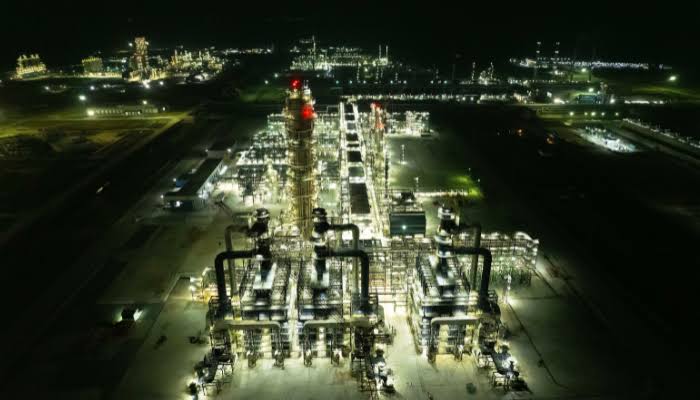Nigeria’s biggest economy is based on its oil and gas industry. However, a public dispute between Dangote Industries Limited (Dangote) and the Nigerian Midstream and Downstream Petroleum Regulatory Authority (NMDPRA) could hurt this industry. This disagreement could slow down progress in a field that is already having trouble with not enough capital.

The $20 billion Dangote refinery, poised to transform Nigeria’s oil industry, faces significant challenges.
At the center of this argument is the $20 billion Dangote plant, which is outside of Lagos. When it’s fully up and running, this plant will be Nigeria’s biggest single investment. It can handle half of the country’s daily oil production. This huge project, which is meant to completely transform Nigeria’s oil industry, could make the country much less reliant on foreign refined goods and increase production in the country itself.
But there is a lot of disagreement about this important accomplishment. The head of the NMDPRA, Farouk Ahmed, has said in public that the refinery’s diesel products are not as good as foreign ones. Because of these claims, what should have been a happy event in Nigeria’s economic history has become less happy.
The fight between Dangote and the NMDPRA brings up bigger problems in Nigeria’s oil and gas industry. The business has had problems for years with not enough investment, unclear regulations, and poor infrastructure. These problems have slowed down growth and kept potential investors from putting a lot of money into the field.
Aliko Dangote, who is Africa’s richest man, runs Dangote Industries Limited. It has long been a symbol of hope for Nigeria’s economic goals. The plant will not only increase the amount of oil that can be refined in the area, but it will also create thousands of jobs and help the economy grow. Nigeria has long struggled with the paradox of being a big oil producer that depends heavily on imported refined petroleum products. The project’s success is seen as very important for the country.
Dangote refinery’s potential to process half of Nigeria’s daily oil output is threatened by regulatory disputes
Even though the plant could be useful, its progress has been slowed by government restrictions and now public complaints. Farouk Ahmed’s comments about the quality of the refinery’s diesel products have caused people to worry about the rules and the chance of more delays. These claims point to deeper problems that might have an effect on how the refinery works and on Nigeria’s oil business as a whole.
The public debate that is still going on shows that private investors and regulatory bodies need to work together more. Nigeria needs to create an open, trusting, and productive dialogue setting in order to get the most out of its oil and gas resources. For the long-term health of the business and the country’s economy, it is important to make sure that investments like the Dangote refinery can go forward without any problems.
In reaction to the claims, Dangote Industries said that its refinery meets all international standards and that the NMDPRA’s concerns will be taken care of as soon as possible. The company makes it clear that it wants to help Nigeria’s business and people’s health of all kinds.
The result of this dispute is likely to have big effects on Nigeria’s oil and gas industry. If these problems can be solved and the refinery is fully operating, it could lead to more investments and a new era of industrial growth for the country. On the other hand, if regulatory problems keep getting in the way of progress, it could stop people from investing in Nigeria’s important oil and gas business in the future, which would keep it from growing.
Farouk Ahmed of NMDPRA criticizes the quality of diesel from Dangote refinery, sparking controversy.
Finally, the public fight between Dangote Industries and the NMDPRA shows how complicated and hard things are in Nigeria’s oil and gas industry. How this problem is solved will have a huge impact on the future of the business and its ability to bring in much-needed investments. Nigeria needs a governing environment that is peaceful and helpful in order to make the most of its many resources.